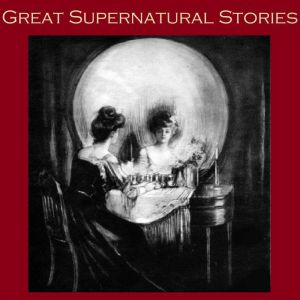

Great Supernatural Stories
Author: Wilkie Collins, Sabine Baring-Gould, H. G. Wells, Various Authors
Narrator: Cathy Dobson
Unabridged: 20 hr 10 min
Format: Digital Audiobook Download
Publisher: Red Door Consulting
Published: 01/19/2018
Categories: Fiction, Classic, Suspense & Thriller, Supernatural, Anthologies
Synopsis
2. The Leaden Ring by Sabine Baring-Gould
3. The Inexperienced Ghost by H. G. Wells
4. The Young Lady in Black by Amyas Northcote
5. The Red Room by H. G. Wells
6. All Souls by Edith Wharton
7. The Moonlit Road by Ambrose Bierce
8. Mr. Tallent's Ghost by Mary Webb
9. Jerry Bundler by W. W. Jacobs
10. The Nature of the Evidence by May Sinclair
11. John Bartine’s Watch by Ambrose Bierce
12. A Strange Christmas Game by J. H. Riddell
13. The Token by May Sinclair
14. The Goldfish by Elinor Mordaunt
15. No Ships Pass by Eleanor Smith
16. The Mystery of the Octagon Room by Eimar O'Duffy
17. Mrs. Scarr by Elinor Mordaunt
18. Sophy Mason Comes Back by E. M. Delafield
19. A Tough Tussle by Ambrose Bierce
20. Haunted by G. Ranger WormserPlus 18 more great supernatural classics!